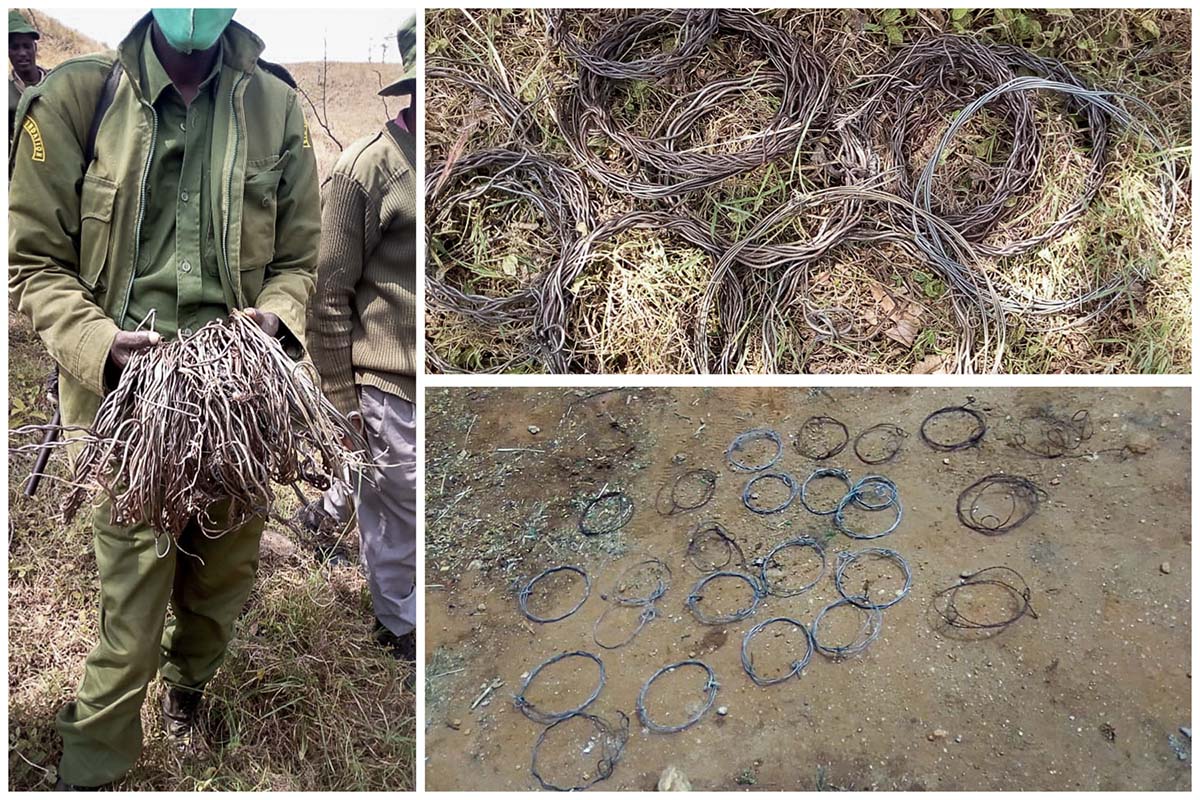
For poachers, the process carries almost no risk. They take a casual stroll into the bush carrying only some wire and deadly intent. The wire is crafted into simple noose snares, which are strung out along wildlife trails and left to kill.
It’s a slow, horrible way for an animal to die and this last week alone Big Life rangers have saved up to 74 animals from that fate by removing as many snares.
Finding pieces of wire hidden across 1.6 million acres is a bit like picking needles from a haystack, and some snares do avoid detection despite the rangers’ best efforts. As a result, some of these 74 snares may predate COVID-19, but we strongly suspect that the recoveries correspond to other reports of increases in bushmeat poaching across East Africa.
Between February and June 2020, the Uganda Wildlife Authority recorded double the number of bushmeat poaching incidents compared to the same period the year before. In a national park in the same country, snare recovery over a 2-month period rose from 21 to 822, year-on-year. In Kenya, the Kenya Wildlife Service reported a 56% increase in bushmeat confiscations since the lockdown began, compared to the same period in 2019.
Big Life’s rangers are working hard to make sure that the Greater Amboseli Ecosystem bucks this trend, by keeping animals out of the hangman’s noose. So far they have been successful, and by arresting poachers they are continuing to deter others from poaching because of the high chance of being caught. There have been a number of poaching flare-ups in the ecosystem, but quick responses have nipped them in the bud.
Huge thanks to all of you who supported our recent fundraising appeal to keep our operations going at full capacity. To those of you who are able to provide financial support, please do. The need remains.
